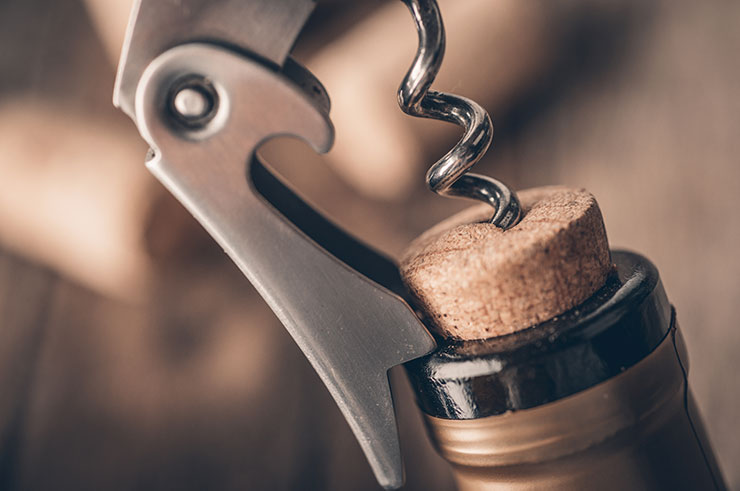Corkage fees are assessed when diners bring their own alcoholic beverages into a restaurant or bar. These fees are designed to make up for lost revenues from wine sales and vary depending on the venue. The legality of corkage fees and bring-your-own-bottle practices depends on the type of Texas alcoholic beverage license held by the establishment. Understanding the rules and the etiquette involved in bringing your own bottle of wine into a Houston restaurant or bar can help you make the most of special evenings out with friends and family.
Navigating Texas Liquor Laws
The Texas Alcoholic Beverage Commission (TABC) administers and enforces laws relating to the alcoholic beverage industry in the Lone Star State. The regulations governing corkage services are relatively complex:
- Patrons are not allowed to bring their own alcoholic beverages into Texas restaurants and bars that hold private club permits.
- The same restrictions apply to bars that maintain mixed beverage licenses allowing the sale of distilled spirits to customers.
- Establishments that do not serve distilled spirits or that do not maintain a license to serve alcohol, however, are legally allowed to provide corkage services to their guests.
- Corkage fees are legal in the bars and restaurants allowed to provide these services. Texas law does not place any restrictions on these fees.
Some restaurants and bars that are eligible to offer corkage services choose not to do so. Others may require the purchase of a bottle of wine or a relatively large corkage fee to recoup the perceived loss of revenues from expected wine sales. Before bringing your own bottle of wine or alcohol, it is a good idea to contact the establishment to determine the fees and policies associated with their corkage services.
Corkage Etiquette
While calling ahead to check on the availability and cost of corkage services is essential to avoid unpleasant surprises at the bar or restaurant, there are also a number of etiquette rules and procedures relating to corkage.
- Check the wine list of the restaurant before bringing your own bottle; it is considered a significant breach of manners to bring a wine that could be purchased on site.
- Do not forget to inquire about the number of bottles you are allowed to bring; some restaurants and drinking establishments set a strict limit of one or two bottles per visit.
- Bringing in a cheap bottle of wine to avoid paying list price at the restaurant is also a faux pas.
- For restaurants that do not charge corkage fees, purchasing a bottle of equivalent value is a nice gesture that can encourage this practice. In some cases, restaurants that do charge for corkage may waive these fees for patrons who purchase a comparable bottle from their wine list.
- Depending on the size of your party and the general atmosphere of the restaurant, offering your server a taste of the wine is also considered polite. This only applies, of course, if your server is old enough to imbibe legally.
- Calculate your tip based on the value of the wine bottle as well as the cost of other food and drinks. This can ensure that your wait staff are not shortchanged, especially in restaurants that charge minimal or no corkage fees.
A number of Houston restaurants offer free or very low cost corkage services for their customers. By checking around for the best deals, food and wine lovers can enjoy the best dining experience for their hard-earned money.
For restaurants and bars interested in offering corkage services, working with a company that specializes in Texas license services can provide added guidance on applicable rules and restrictions. Staying on the right side of the law can help these businesses maintain their TABC license while avoiding citations and fines for infractions of the Texas legal code.

